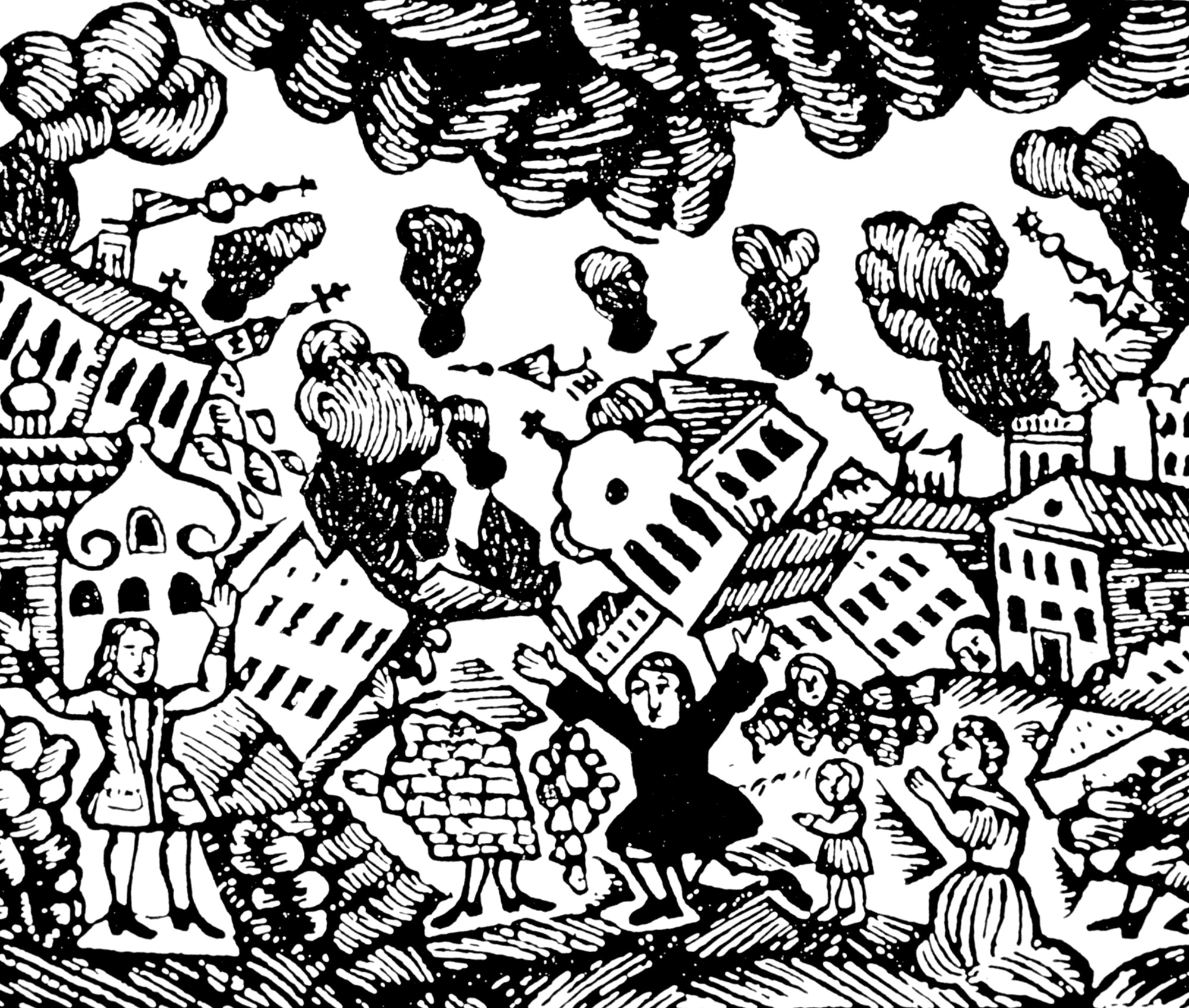The Lisbon Earthquake
A historic convulsion
Walter Benjamin

Between 1927 and 1933, Walter Benjamin wrote and presented some eighty programs on German radio, many designed, like this broadcast, for children. “The Lisbon Earthquake” aired on Berliner Rundfunk on 31 October 1931 and on Südwestdeutsche Rundfunk, Frankfurt, on 6 January 1932.
Have you ever had to wait at the pharmacy and noticed how the pharmacist fills a prescription? On a scale with very delicate weights, ounce by ounce, dram by dram, he weighs all the substances and specks that make up the final powder. That is how I feel when I tell you something over the radio. My weights are the minutes; very carefully I must weigh how much of this, how much of that, so the mixture is just right. You’re probably saying, But why? If you want to tell us about the Lisbon earthquake, just start at the beginning. Then go ahead and tell us what happened next. But I don’t think that would be much fun for you. House after house collapses, family after family is killed; the terror of the spreading fire, the terror of the water, the darkness and the looting, the wailing of the injured, and the cries of the people searching for loved ones—no one wants to hear just this and nothing more, and besides, these things are more or less the same in every natural catastrophe.
But the earthquake that destroyed Lisbon on November 1, 1755, was not a disaster like thousands of others. In many ways it was singular and strange, and this is what I’d like to talk to you about. To begin with, it was one of the greatest and most devastating earthquakes of all time. But it was not only for this reason that it moved and preoccupied the entire world in that century as few other things did. At the time, the destruction of Lisbon was comparable to the destruction of Chicago or London today. In the middle of the eighteenth century, Portugal was still at the height of its colonial power. Lisbon was one of the wealthiest commercial cities on Earth; at the mouth of the Tagus river, its harbor, full of ships year in and year out, was lined with trading houses belonging to merchants from England, France, and Germany, and above all from Hamburg. The city had thirty thousand dwellings and well over 250,000 inhabitants, roughly a quarter of whom died in the earthquake. The royal court was famed for both its austerity and its splendor. The many accounts of Lisbon published before the earthquake reveal the strangest details of the court’s rigid formalities; how, for instance, on summer evenings courtiers and their families would rendezvous in the main square, the Rucio, where they chatted for a short spell without ever leaving their carriages. People had such an elevated notion of the king of Portugal that one of the many leaflets conveying detailed descriptions of the calamity all across Europe could not fathom that such a great king could also have been affected by it. “Just as the extent of a catastrophe can only be grasped once it has been overcome,” writes this particular chronicler, “the dire ramifications of this frightful case can only be felt once one considers that the king and his wife, altogether abandoned, spent an entire day in a carriage under the most wretched conditions.” Leaflets featuring such passages functioned as newspapers do for us today. Those with the capacity to do so collected detailed eyewitness accounts and had them printed and sold. Later on, I will read to you from another such report, one based on the experiences of an Englishman residing in Lisbon at the time.